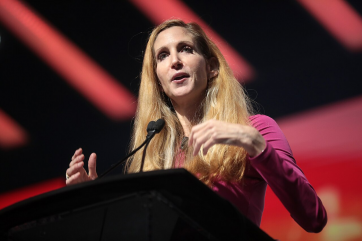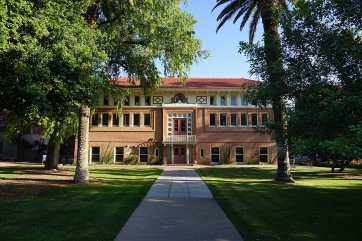Obama Urges Colleges to Expand Education Opportunities and Boost Affordability for Low-Income Students
By Staff ReporterPresident Barrack Obama and first lady Michelle Obama interacted with over 100 college and university presidents at the White House Thursday, to identify ways of expanding college opportunities and affordability for high-performing, low-income students. Representatives of 40 nonprofits and other organizations, who expressed their willingness to fund the efforts, were also present at the event.
Obama urged all the members present at the event to improve college access and affordability for disadvantaged students, and thereby help them receive an education.
"We are here for one purpose: We want to make sure more young people have the chance to earn a higher education. And in the 21st century economy, we all understand it's never been more important," Obama said.
"We want to restore the essential promise of opportunity and upward mobility that's at the heart of America. To that end, young people, low-income students in particular, must have access to a college education."
College and University leaders had to come up with proposals that would help needy students get into a college. The leaders suggested offering more financial aid, college application fee waivers and outreach programs that would help students from disadvantaged backgrounds to find a suitable college. They also suggested providing free SAT and ACT test preparation or increasing the accessibility of college counselors.
Eric W. Kaler, University of Minnesota president, promised to provide increased financial aid and counsel to students from poor communities.
"I'm proud of the fact that we don't accept students at the University of Minnesota who we don't project to succeed, said Kaler."We look for the potential," NPR reports.
Janet Napolitano, president of the University of California system and former Secretary of Homeland Security under Obama, said that the officials have implemented some of the suggested measures to improve student admission rates from low-income families.
Napolitano said that 50 percent of students across the system's 10 campuses have graduated without debt. The system has been able to accomplish these numbers because of its 'return to aid' program, where 30 percent of the tuition dollars are reported back to the system to offer financial aid for needy students.
Cecilia Munoz, director of the White House Domestic Policy Council, said that on its part the Obama administration has taken steps to increase the enrollment of low-income students across the country by increasing investments in Pell Grants and college tax credits, expanding student loan repayment options and ranking colleges based on value and quality.
"Even after all these steps that we've taken over the last five years, we still have a long way to go to unlock the doors of higher education to more Americans and especially lower-income Americans," Obama said. "We're going to have to make sure they're ready to walk through those doors."
But Munoz said that college and university leaders must support the federal government's initiative because a college degree is not just important for an individual but also for the economy.
"You know...that the demands of today's economy have made a college degree no longer just for a talented few," Munoz said. "It's a necessity for our economic growth, it's a necessity for our economic success and it's a necessity for the success of young people coming up in our country today," US News reports.
Non-profit organisations were also equally eager to help students complete complex college admission and financial aid processes. Jim McCorkell, president of College Possible, shared a plan with the president to approach a total of 20,000 students in Nebraska, Oregon, Wisconsin, Minnesota and Pennsylvania. On the other hand, Sal Khan, founder of Khan Academy, said that technology can be used to increase access to college counselors to more students.
McCorkell said that more number of students are now attending community colleges instead of a four-year college due to tuition costs and student debt.
"When you look at the average student loan debt in America, it's now approaching $30,000; so something has got to be done," says McCorkell. "The question is, what's driving tuition up at a rate so much greater than inflation?"
Jack Markell, a democrat and Delaware's governor, said that enrolling students from low income families is going to be a costly affair for public universities, given the state funding cuts in recent years. At the same time, Markell also said that one cannot afford to let go such students just because of their financial status.








